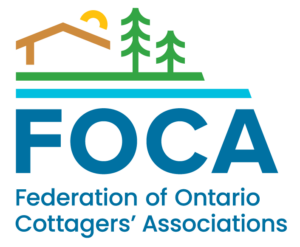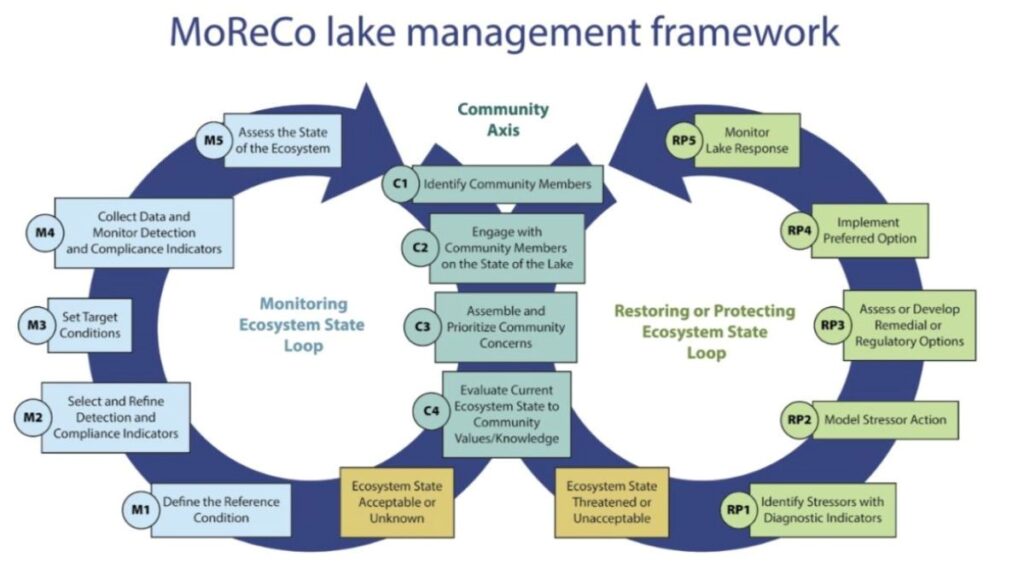
FOCA supports waterfront communities who want to make (or update) a local lake plan, as part of FOCA’s stewardship goals across Ontario.

May 2024 – Cottage Q&A: Is a lake plan a good idea? (Cottage Life)
February, 2024 – NEW PAPER: A lake management framework for global application: monitoring, restoring, and protecting lakes through community engagement (Lake Reservoir Management 40:66–92)
A group of international limnologists, including Dr. Norman Yan of the Friends of the Muskoka Watershed, have published a scientific paper on a generic lake management framework called “A lake management framework for global application: monitoring, restoring, and protecting lakes through community engagement”. The writers include 14 authors from three continents. The framework includes Monitoring, Restoring/Protecting, and Community Engagement pathways, to protect lakes and address climate change challenges.
Access the link to the posting in the journal of the North American Lake Management Society, above and click the image of the framework to expand it.
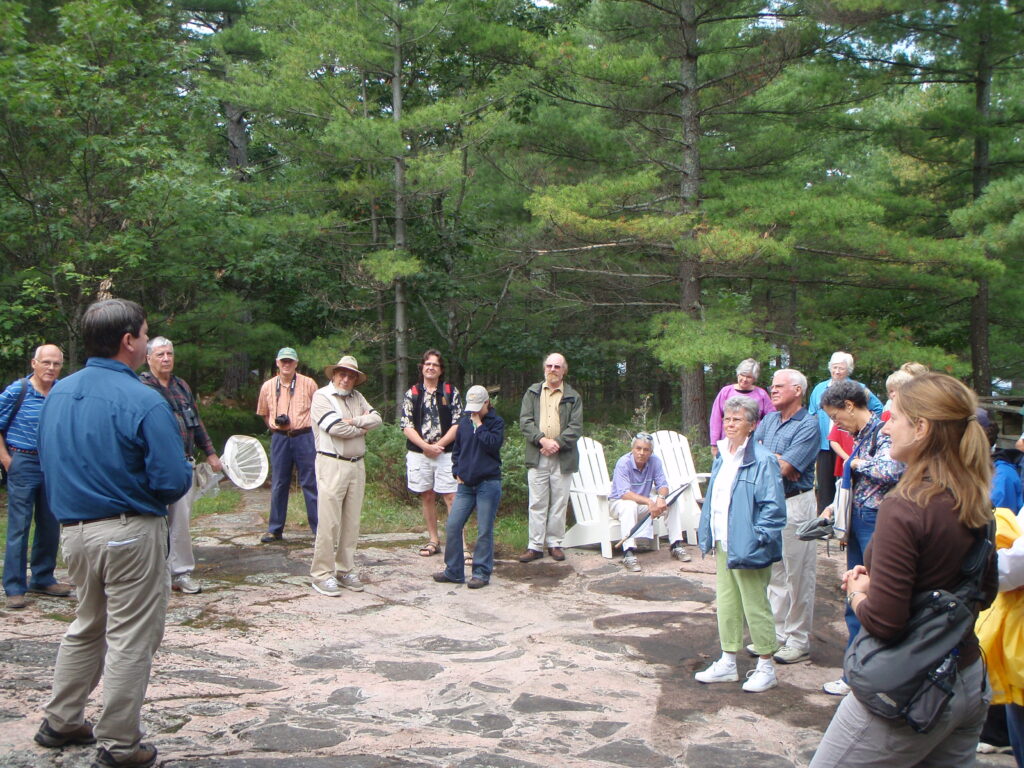
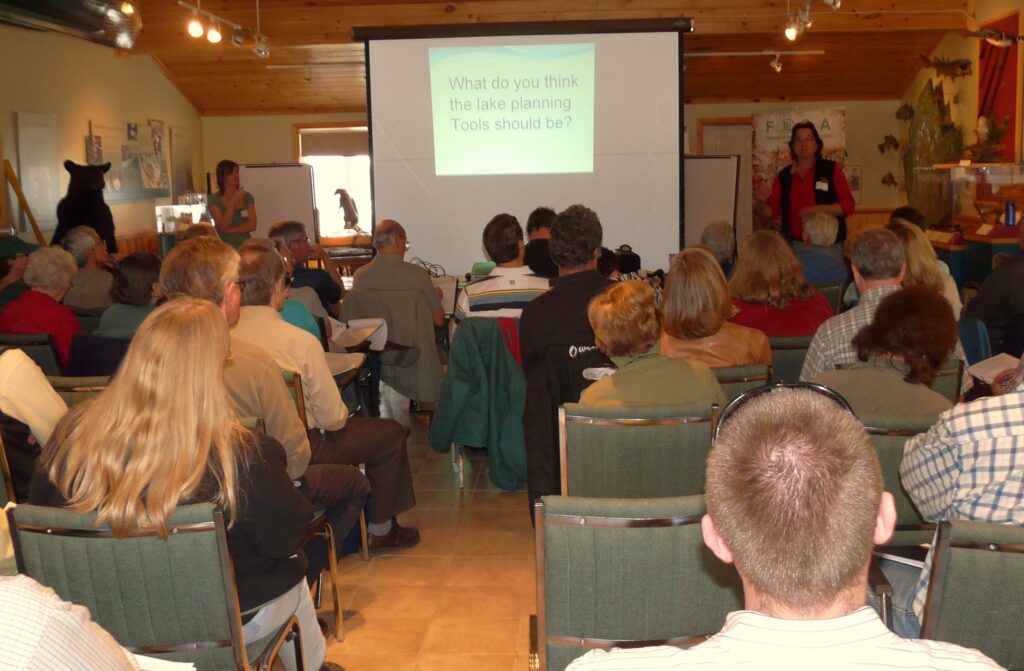
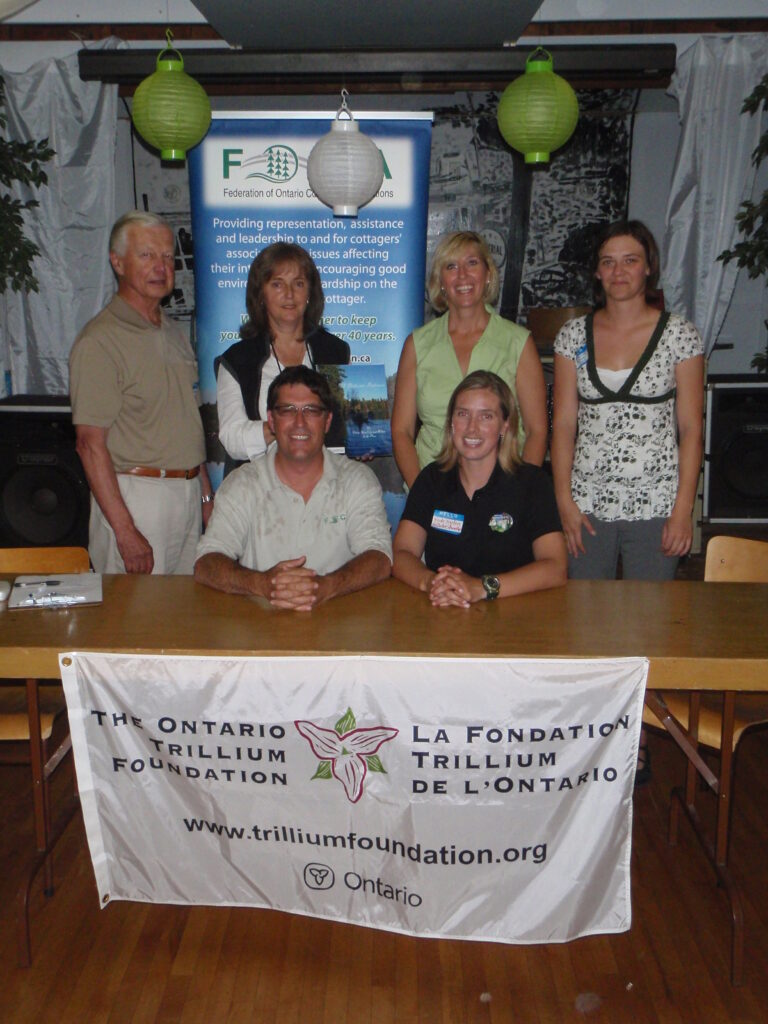

Making a Lake Plan is a process that requires a devoted group of volunteers to move forward. Although every Lake Plan is unique, there are some commonalities that can help frame your discussions. FOCA created a member resource, the Lake Planning Handbook for Community Groups to help you!
Lake Plans provide a scientific approach to preserving the environment over the short and long term. A lake plan includes detailed field inventories of sub-watersheds, rivers, and lakes to identify natural features and factors affecting their health. This information is used to create a plan to maintain good conditions such as water quality, and to address any problems that threaten watershed conditions, now and into the future.
Planning and implementation of a Lake Plan is often directed by a steering committee made up of landowners, volunteers, and representatives from community organizations, government partners, and other regional agencies or groups.
Lake planning is a strategic process that provides the opportunity to engage all community members and partners, to develop and implement actions to maintain or improve the natural and social qualities of life on our lakes, rivers and shoreline communities.
The ultimate goal of a successful Lake Plan is to see the priorities identified in the Plan adopted by the local municipal or county Official Plan. Learn more about land use planning and government engagement from FOCA’s additional webpages.

Learn about making a lake plan!
The FOCA Lake Planning Handbook for Community Groups is a 65-page guide based upon the collective experience of dozens of lake associations across Ontario. The Handbook and is filled with advice, ideas, question and answers about lake planning, project management, and communications. It helps waterfront property owners and associations to build the important relationships around the lake, and to undertake strategic planning and stewardship initiatives.
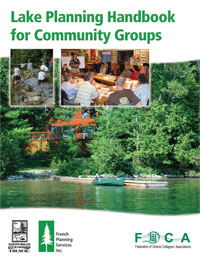
While the original guide is now out-of-print, FOCA offers a digital copy to our Member Associations at no charge. Members are encouraged to login to access a digital copy, or contact the office for assistance.
Download a copy of this member resource from its dedicated webpage:
- Lake Planning Handbook webpage (available by member login)
The digital handbook includes detailed support materials for each step in the process such as example templates, other associations’ lake plans, survey ideas, workshop agendas, sample community presentations, and more.

The Lake Planning Handbook was developed by the Federation of Ontario Cottagers’ Associations, the Haliburton Highlands Stewardship Council and French Planning Services Inc. FOCA would also like to thank the Ontario Trillium Foundation for providing a generous grant that made the development of the handbook possible.

Please note: the following is archival material, and some links to third-party resources may no longer be active.
2014 – Thank you to everyone who provided their input to the 2014 Lake Plan Survey, conducted under the triple banner of French Planning Services, Lake Links and FOCA! Members can download the Lake Plan Survey 2014 Summary Results (PDF, 23 pages). This summary contains a wealth of ideas and information for lake groups keen to increase engagement and put lake plans into action.
In particular, review the final four pages of the Summary for a great list of successful activities undertaken by your association peers on 68 lakes!
